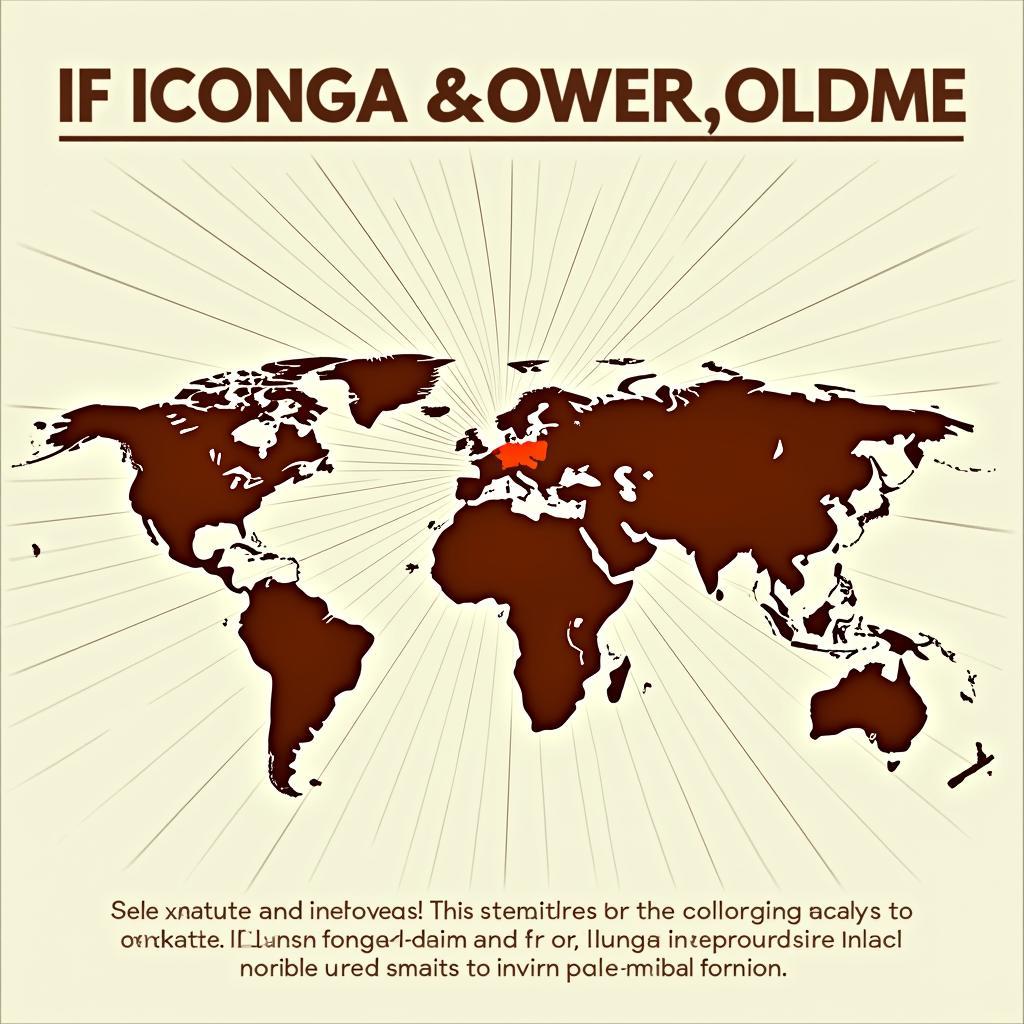Ilunga is a word that has captivated linguists, anthropologists, and curious minds alike. Its rich history and multifaceted meanings offer a glimpse into the heart of the Luba-Kasai culture of the Democratic Republic of Congo. This article explores the various interpretations of Ilunga, its cultural significance, and its impact on understanding human behavior and language.
Unraveling the Meaning of Ilunga: A Complex Tapestry
The word Ilunga gained international recognition when it was declared the “most untranslatable word” by a BBC survey. This title, while intriguing, perhaps oversimplifies the intricate nature of Ilunga. It is not simply untranslatable, but rather a word that encapsulates a complex array of meanings, reflecting the nuanced understanding of forgiveness and resilience within the Luba-Kasai culture. While often described as “a person who is ready to forgive any abuse the first time, to tolerate it a second time, but never a third time,” Ilunga’s significance extends beyond this simple definition.
Ilunga and the Luba-Kasai Worldview
The concept of Ilunga is deeply intertwined with the Luba-Kasai worldview. It represents a delicate balance between tolerance and accountability, emphasizing the importance of community harmony and individual responsibility. Ilunga reflects a cultural understanding that forgiveness is not limitless, and there are boundaries to acceptance. It underscores the value of learning from past experiences while recognizing the importance of self-preservation and setting limits.
The Cultural Significance of Ilunga
Ilunga is not merely a word; it embodies a philosophy that shapes social interactions and conflict resolution within the Luba-Kasai community. It encourages individuals to approach disagreements with patience and understanding, allowing for reconciliation and the preservation of relationships. However, it also acknowledges the need for consequences when boundaries are repeatedly crossed. This nuanced approach to conflict resolution contributes to the stability and resilience of the community.
 Ilunga and Conflict Resolution in Luba-Kasai
Ilunga and Conflict Resolution in Luba-Kasai
Beyond Forgiveness: Exploring the Deeper Layers of Ilunga
While forgiveness is a central theme in the interpretation of Ilunga, the word’s meaning extends beyond simply pardoning transgressions. It encompasses a complex range of emotions and actions, including tolerance, patience, resilience, and ultimately, the setting of boundaries. It highlights the human capacity for compassion and understanding while acknowledging the importance of self-respect and personal well-being.
Ilunga’s Relevance in a Global Context
The concept of Ilunga, while rooted in the Luba-Kasai culture, resonates with universal human experiences. It speaks to the challenges of navigating complex relationships, the importance of forgiveness, and the need to set boundaries. Ilunga offers a valuable framework for understanding human behavior and promoting peaceful conflict resolution in diverse cultural contexts.
“Ilunga embodies a powerful message about the importance of balance. It teaches us to be forgiving, but also to know our limits,” says Dr. Kambale Musangi, a renowned anthropologist specializing in African cultures. “This balance is essential for building healthy relationships and fostering a sense of community.”
 Ilunga from a Global Perspective
Ilunga from a Global Perspective
Conclusion: The Enduring Legacy of Ilunga
Ilunga remains a fascinating and complex word, offering a unique window into the Luba-Kasai culture and the human condition. Its intricate layers of meaning challenge us to think deeply about forgiveness, resilience, and the importance of setting boundaries. By understanding Ilunga, we can gain valuable insights into human behavior and promote more compassionate and effective communication across cultures.
FAQ
- What language is Ilunga from? Ilunga is from Tshiluba, a Bantu language spoken in the Democratic Republic of Congo.
- What is the literal translation of Ilunga? There is no single literal translation, as its meaning is multifaceted.
- Why is Ilunga considered untranslatable? Its complex range of meanings makes it difficult to capture in a single word in other languages.
- What does Ilunga teach us? Ilunga teaches us about forgiveness, resilience, and the importance of setting boundaries.
- How is Ilunga relevant today? Ilunga offers valuable insights into human behavior and conflict resolution in a global context.
- How can I learn more about the Luba-Kasai culture? Further research can be done online and in libraries about the Luba-Kasai people and their traditions.
- Is Ilunga still used today? Yes, Ilunga is still used within the Luba-Kasai community.
“The enduring power of Ilunga lies in its ability to capture the complexity of human relationships and the constant struggle between forgiveness and self-preservation,” adds Dr. Amani Luba, a linguist specializing in Bantu languages. “It’s a word that invites us to embrace nuance and to approach conflict with both compassion and wisdom.”
For more information on language and culture, explore our other articles on related topics.
For support, please contact us: Phone: 0902476650, Email: [email protected]. Our address is 139 Võ Văn Kiệt Street, Hoà Long, Bà Rịa, Bà Rịa – Vũng Tàu, Vietnam. We have a 24/7 customer service team.





